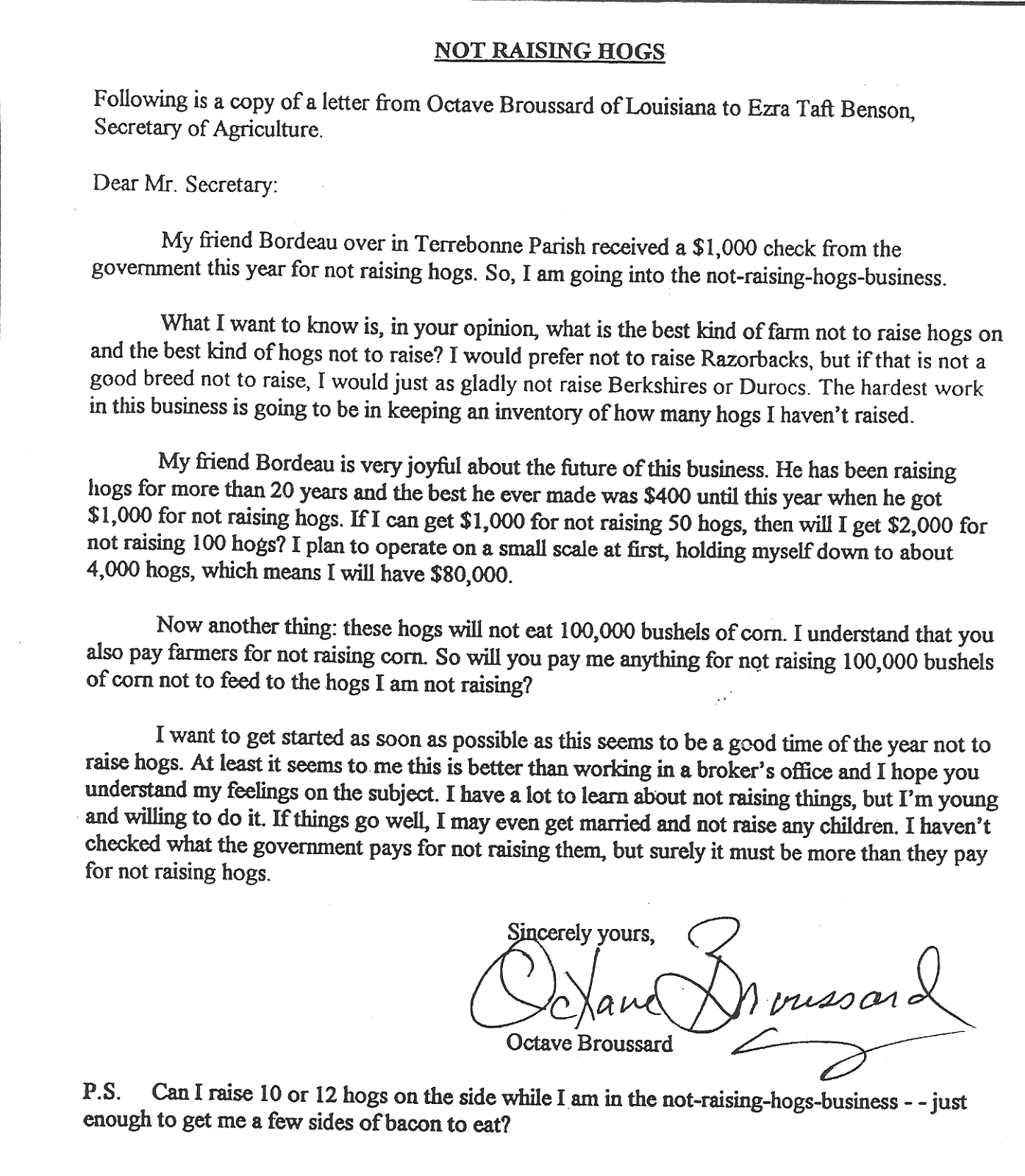Author, The Happiest Man in the World: Life Lessons from a Cultural Economist
Occasionally my exuberance is misunderstood regarding the straight line that runs between Runny Meade, England, and King John’s signing of the Magna Carta, and the signing of the Declaration of Independence in Philadelphia. Sometimes the sense of pride with which I write concerning free enterprise and the greatest cultural and economic experiment in history is misinterpreted.
When I speak about free enterprise and freedom of cultural and economic choice, my friends sometimes think that I am inferring that the United States of America actually has that kind of economic system today. The truth is this: we did, but we don’t. And, to the same degree that we have been losing our freedom of choice and free enterprise, we have been losing our position of wealth: try seventeen or twenty-five trillion dollars in debt for size!
I have determined not to allow these articles to become add- upon reiterations of examples how the Marxist progressives have eroded the historically unique example of the free enterprise economic system. Readers can find at least a thousand of those web sites speaking to that. But I do want to give a clear, historic setting in order to follow how our economic and cultural thinking has moved through the ensuing years. The end of these writings is intended to be enlightenment and hope for tomorrow.
Our system started getting jumbled around the time of the Great Depression, beginning about 1929. Eventually, the cozy relationship between President Franklin D. Roosevelt of the U.S. and English economist John Maynard Keynes moved our country toward Marxist socialism and a centralized economic system by leaps and bounds.
We began falling for the same voluptuous temptation that snared Marx, Engles, Lenin, and Trotsky. It is possible to buy the souls and the support of the citizens for a mess of pottage. It can be accomplished by promising to redistribute the wealth of the czars or the assets of the nation to the common citizens for their vote and political support. It becomes the great mirage, where everybody believes that they can live at the expense of everybody else.
Following the Great Depression, Keynes continued to press Roosevelt to take direct control of America’s economic system and assets. He chided him for lagging in taking over the housing industry. He then turned to the subject of utilities. He told Roosevelt, “Personally, I think there is a great deal to be said for the ownership of all the utilities by publicly owned boards.” Regarding the railroads, Keynes told Roosevelt to “nationalize them if the time is ripe.” By the government owning and controlling everything, it could dole out a bit at a time to the citizens and thus guarantee their support and democratic vote.
During the 1930s, the farm population was about twenty-five percent of the general population in America. A twenty-five percent voting block of the nation was far too ripe to ignore. Roosevelt intended to be President for the rest of his life . . . and he was. He was never defeated in a presidential election.
The case was then built that the “farm family” was a fundamental U.S. institution and should be nurtured as a way of life. Additionally, it was portrayed that farm families were subject to extraordinary hazards like floods, insects, farm accidents, and droughts. Surely, there was no way the “farm family” could exist without government help. To make certain farmers never had to risk the plight of low income levels, they would receive higher prices for their products and income subsidies through public assistance. “And thank you for your continued vote so that these amenities will not have to be taken away from you.”
Over the years some almost unbelievable programs have been introduced under this subsidy umbrella. It would have made the Marxist Gosplan downright proud. During my graduate program, I ran across this letter from Octave Broussard of Louisiana to Ezra Taft Benson, who was the Secretary of Agriculture for two terms during the 1950s. I include it here just to demonstrate how recipients of subsidy move to the position of entitlement with ease and expectation. Once a recipient begins to receive subsidy, it is almost impossible to break that addiction.
If buying the votes had not been the real issue, the free enterprise system would have informed the farmers in mere seconds what crops to plant, how much to plant, where to buy the seed, and where to sell at the exact and right price. Next week we will briefly check in on where we are in the agriculture industry today.
Next Week: Farm policy
(Research ideas from Dr. Jackson’s new writing project on Cultural Economics)
© Dr. James W. Jackson
Permissions granted by Winston-Crown Publishing House
 Dr. James W. Jackson often describes himself as "The Happiest Man in the World." A successful businessman, award-winning author and humanitarian, Jackson is also a renowned Cultural Economist and international consultant, helping organizations and governments to apply sound economic principals to the transformation of culture so that everyone is "better off."
Dr. James W. Jackson often describes himself as "The Happiest Man in the World." A successful businessman, award-winning author and humanitarian, Jackson is also a renowned Cultural Economist and international consultant, helping organizations and governments to apply sound economic principals to the transformation of culture so that everyone is "better off."As the founder of Project C.U.R.E., Dr. Jackson traveled to more than one hundred fifty countries assessing healthcare facilities, meeting with government leaders and "delivering health and hope" in the form of medical supplies and equipment to the world's most needy people. Literally thousands of people are alive today as a direct result of the tireless efforts of Project C.U.R.E.'s staff, volunteers and Dr. Jackson.
To contact Dr. Jackson, or to book him for an interview or speaking engagement: press@winstoncrown.com


No comments:
Post a Comment